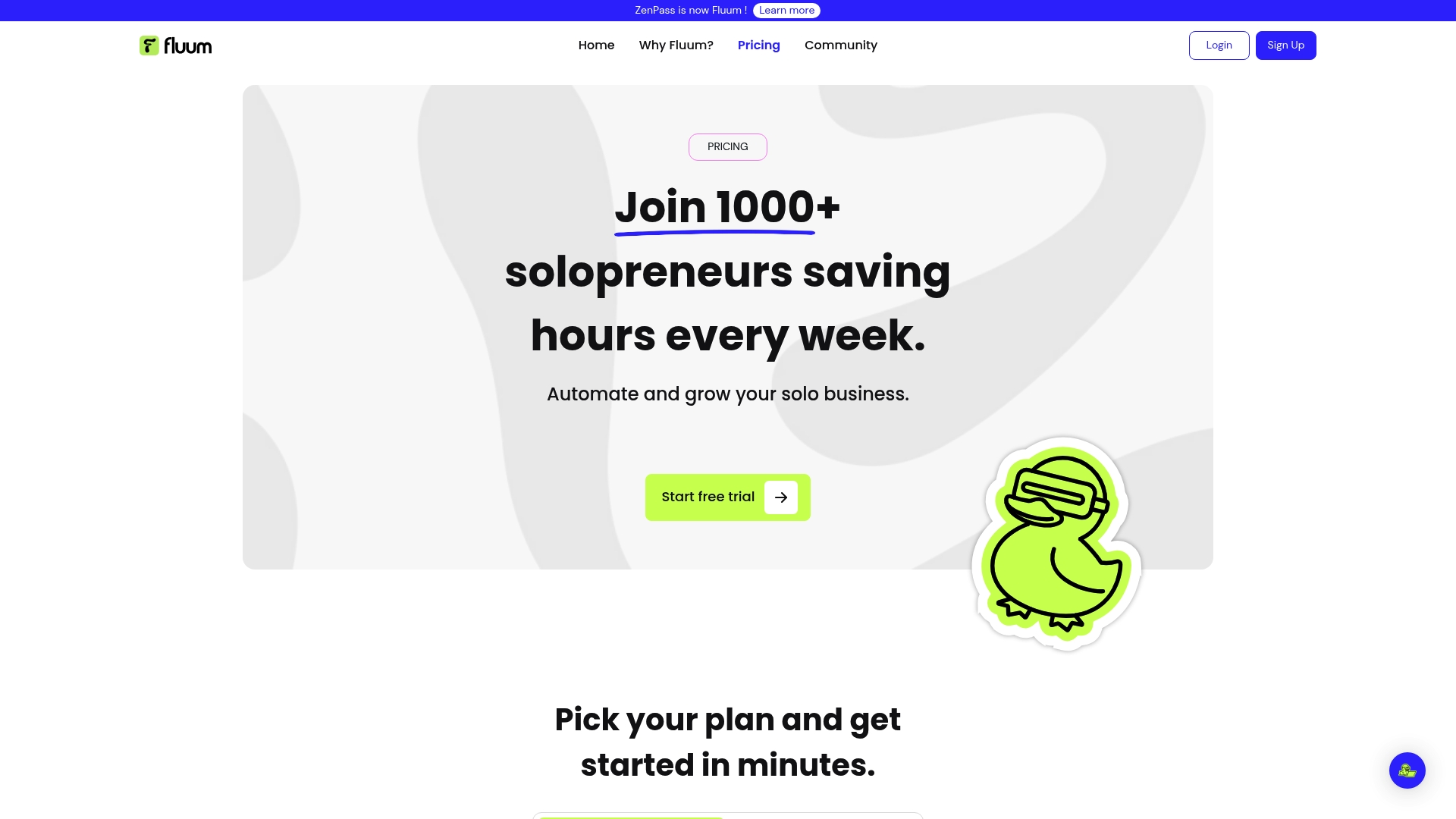
What is content marketing? Content marketing is everywhere, from blog posts to podcasts and how-to videos. It now costs 62 percent less than traditional marketing and yet generates three times more leads. Sounds like anyone can win big just by posting online, right? The real surprise is most people get it wrong, because true success comes not from the sheer amount of content, but from laser-focused strategy and authentic storytelling that actually connects.
Table of Contents
- Defining Content Marketing: What Is It?
- The Importance Of Content Marketing In Today’s Market
- How Content Marketing Works: Key Mechanisms
- Core Concepts Of Content Marketing Explained
- The Future Of Content Marketing: Trends And Insights
Quick Summary
| Takeaway | Explanation |
|---|---|
| Content Marketing Builds Trust | Focus on providing valuable content rather than direct sales to engage your audience. |
| Identify Audience Needs | Understand your audience’s pain points and tailor your content to solve their specific challenges. |
| Utilize Multiple Platforms | Distribute content across various channels to maximize reach and audience engagement. |
| Focus on Long-term Relationships | Prioritize sustained audience engagement to convert passive followers into active community members. |
| Adapt to Emerging Trends | Embrace technological advancements for personalized, immersive content experiences to stay relevant. |
Defining Content Marketing: What Is It?
Content marketing represents a strategic approach that focuses on creating and distributing valuable, relevant content to attract and engage a specific target audience. Content Marketing Institute defines this practice as a method designed to drive profitable customer actions through consistent, high-quality information sharing.
The Core Purpose of Content Marketing
At its essence, content marketing goes beyond traditional advertising by prioritizing genuine value and audience education. Instead of directly selling products, this approach aims to build trust, establish expertise, and create meaningful connections with potential customers. Solopreneurs and service providers use content marketing to demonstrate their knowledge, showcase their unique skills, and position themselves as trusted authorities in their respective fields.
The fundamental goal is transforming passive audience members into engaged followers who perceive your content as a valuable resource. By consistently delivering insights, solving problems, and addressing audience needs, you create a compelling narrative that naturally attracts potential clients.
Strategic Content Development
Successful content marketing requires understanding your audience deeply. This means crafting content that directly addresses their challenges, questions, and aspirations. For service providers like coaches, wellness practitioners, and consultants, this could involve creating informative blog posts, instructional videos, podcasts, or comprehensive guides that provide actionable insights.
Key elements of strategic content development include:
- Identifying precise audience pain points
- Creating content that offers genuine solutions
- Maintaining a consistent and authentic voice
- Delivering information in accessible, engaging formats
While content marketing demands consistent effort, it offers remarkable long-term benefits. By establishing yourself as a knowledgeable resource, you attract clients who are already pre-disposed to trust your expertise and understand the value you provide.
The Importance of Content Marketing in Today’s Market
Marketing research from Demand Metric reveals that content marketing generates approximately three times more leads than traditional marketing strategies while costing 62% less.
 This statistic underscores the transformative power of strategic content creation for solopreneurs and service providers seeking cost effective audience engagement.
This statistic underscores the transformative power of strategic content creation for solopreneurs and service providers seeking cost effective audience engagement.
Below is a table summarizing the main differences between content marketing and traditional marketing, based on the advantages and strategic points discussed in the article.
| Aspect | Content Marketing | Traditional Marketing |
|---|---|---|
| Cost | 62% less expensive | Higher costs for advertising |
| Lead Generation | 3x more leads | Fewer leads generated |
| Focus | Providing value and building trust | Directly promoting products/services |
| Relationship Building | Long-term audience relationships | Short-term transactional focus |
| Audience Targeting | Highly targeted and personalized | Broad, less personalized approach |
| Conversion Approach | Nurturing through valuable content | Aggressive sales tactics |
Economic and Strategic Advantages
Content marketing offers profound economic benefits beyond traditional advertising channels. By creating valuable, targeted content, service providers can establish credibility without substantial financial investment. Digital platforms enable precise audience targeting, allowing coaches, consultants, and wellness practitioners to reach potential clients through highly personalized communication strategies.
The approach allows professionals to showcase expertise without aggressive sales tactics. Through informative content, service providers demonstrate knowledge, build trust, and create meaningful connections that naturally convert audience interest into potential client relationships. Learn more about our content positioning tips to enhance your marketing strategy.
Building Long Term Audience Relationships
Content marketing transcends immediate transactional goals by focusing on sustained audience engagement. Successful strategies involve consistently delivering value through:
- Educational materials addressing specific audience challenges
- Insights that demonstrate professional understanding
- Transparent communication showcasing authentic expertise
- Storytelling that connects personal experience with audience needs
By prioritizing audience education and genuine value, service providers transform passive followers into active community members. This approach cultivates trust, establishes professional reputation, and creates a sustainable marketing ecosystem that grows organically through consistent, high quality content delivery.

How Content Marketing Works: Key Mechanisms
HubSpot’s Marketing Research demonstrates that businesses utilizing strategic content marketing experience 6x higher conversion rates compared to traditional marketing approaches. Understanding the underlying mechanisms becomes crucial for solopreneurs seeking efficient audience engagement.
Content Ecosystem and Distribution
Content marketing operates through a sophisticated ecosystem of creation, distribution, and audience interaction. The fundamental mechanism involves generating valuable, targeted content that addresses specific audience needs and challenges. This process requires deep understanding of audience demographics, pain points, and information consumption preferences.
Service providers must develop content across multiple platforms to maximize reach. This might include blog posts, social media updates, podcasts, instructional videos, and comprehensive guides. Check out our guide on content calendar planning to streamline your content strategy.
Audience Engagement and Conversion Pathways
Effective content marketing transforms passive information consumption into active audience engagement. The key conversion mechanisms include:
- Establishing professional credibility through expert insights
- Creating emotional connections through authentic storytelling
- Providing actionable solutions to specific audience challenges
- Nurturing trust through consistent, high quality content delivery
The ultimate goal transcends immediate sales. Content marketing aims to build long term relationships where potential clients perceive your content as a valuable resource. By consistently demonstrating expertise and understanding, solopreneurs can naturally guide audience members through subtle conversion pathways without aggressive sales tactics.
Core Concepts of Content Marketing Explained
Coursera’s Content Marketing Course highlights that content marketing is fundamentally about creating strategic, valuable communication designed to attract and retain a specific audience. Understanding its core concepts transforms content from mere information to a powerful business tool.
Foundational Strategic Elements
Content marketing operates on precision and intentionality. The core strategic framework requires professionals to develop content that goes beyond surface level information, focusing instead on delivering meaningful insights tailored to specific audience segments. This means understanding not just what information to share, but how to craft messages that resonate deeply with target audiences.
For solopreneurs and service providers, this translates to creating content that demonstrates genuine expertise while addressing specific client challenges. The strategic approach involves analyzing audience needs, identifying knowledge gaps, and developing content that provides actionable solutions. Explore our guide on content calendar planning to refine your strategic content development.
Key Conceptual Frameworks
Successful content marketing revolves around several interconnected conceptual frameworks that guide effective communication strategies:
- Audience-centric approach prioritizing client needs
- Consistent messaging across multiple communication channels
- Value-driven content that educates and empowers
- Authentic storytelling that builds genuine connections
These frameworks work synergistically to transform content from simple information delivery into a sophisticated relationship-building mechanism. By understanding and implementing these core concepts, service providers can create a robust content strategy that attracts, engages, and converts potential clients through meaningful, targeted communication.
Here is a table highlighting the foundational elements and conceptual frameworks essential for successful content marketing as outlined in the article.
| Strategic Element / Framework | Description |
|---|---|
| Audience-centric Approach | Prioritizes understanding and addressing audience needs |
| Consistent Messaging | Ensures uniform communication across channels |
| Value-driven Content | Focuses on education and empowerment |
| Authentic Storytelling | Uses genuine narratives to build connections |
| Analyzing Audience Needs | Identifies knowledge gaps and pain points |
| Actionable Solutions | Provides tangible solutions to audience challenges |
The Future of Content Marketing: Trends and Insights
Forrester Research indicates that emerging content marketing trends are fundamentally reshaping how professionals communicate and engage with audiences. The landscape is rapidly evolving, driven by technological advancements and changing consumer expectations.
Technological Integration and Personalization
Future content marketing strategies will be defined by hyper personalization and intelligent technological integration. Advanced AI and machine learning technologies are enabling service providers to create more targeted, contextually relevant content experiences. This means moving beyond generic messaging to develop highly sophisticated, individualized communication approaches that speak directly to specific audience segments.
Solopreneurs and service providers must adapt by leveraging data analytics and intelligent content distribution platforms. The goal is creating dynamic content ecosystems that can automatically adjust and respond to audience interactions. Learn more about our social media content planning strategies to stay ahead of emerging trends.
Emerging Content Experience Paradigms
The next generation of content marketing will focus on creating immersive, interactive experiences that transcend traditional communication models. Key emerging trends include:
- Multimedia content integration across multiple platforms
- Interactive and responsive content formats
- Real time personalization capabilities
- Enhanced audience engagement through immersive storytelling
Successful content marketers will view their strategies as living, adaptive systems rather than static communication channels. By embracing technological innovation and maintaining a deep commitment to audience value, service providers can develop content strategies that are not just current, but genuinely future proof.
Ready to Transform Your Content Marketing Into Real Growth?
If you are feeling the pressure of creating consistent, value-driven content while managing client relationships and operations, you are not alone. The article explains how modern content marketing is all about engagement, credibility, and building trust. Yet keeping up with regular posting and tracking real results can leave even the most passionate provider overwhelmed. Imagine if you could automate your outreach, nurture leads, and manage your content all in one place without needing tech skills or extra time.

Experience the power of an AI-powered co-founder built for solopreneurs in wellness, coaching, and consulting. Fluum.ai brings all your sales funnels, client management, and marketing tools together so you can focus on what matters most: growing your business through meaningful content. Want to see how streamlined content planning and audience engagement feels? Explore our business growth guides and templates or get started now by checking the latest subscription options. Let your content marketing work for you today.
Frequently Asked Questions
What is content marketing?
Content marketing is a strategic approach focused on creating and distributing valuable, relevant content to attract and engage a specific target audience, ultimately driving profitable customer actions.
Why is content marketing important for businesses?
Content marketing is important because it generates more leads at a lower cost compared to traditional marketing. It helps build trust, establish authority, and create long-term relationships with an audience, leading to higher conversion rates.
How does content marketing work?
Content marketing works by creating targeted, valuable content that addresses specific audience needs. This content is then distributed across various platforms, engaging the audience and guiding them through conversion pathways without aggressive selling.
What are the key components of a successful content marketing strategy?
Key components of a successful content marketing strategy include understanding the audience’s pain points, crafting valuable content that provides solutions, maintaining consistency in messaging, and delivering information in engaging formats.
Recommended
- Fluum | What is Social Media Content Planning for PTs
- Fluum | What is Content Positioning Tips
- Fluum | What is Email Marketing for Fitness Professionals
- Fluum | What is Email Marketing for Nutrition Coaching
- Fluum ! 7 Steps to Overcoming Imposter Syndrome for Solopreneurs
- What is Content Marketing? Understanding Its Importance



